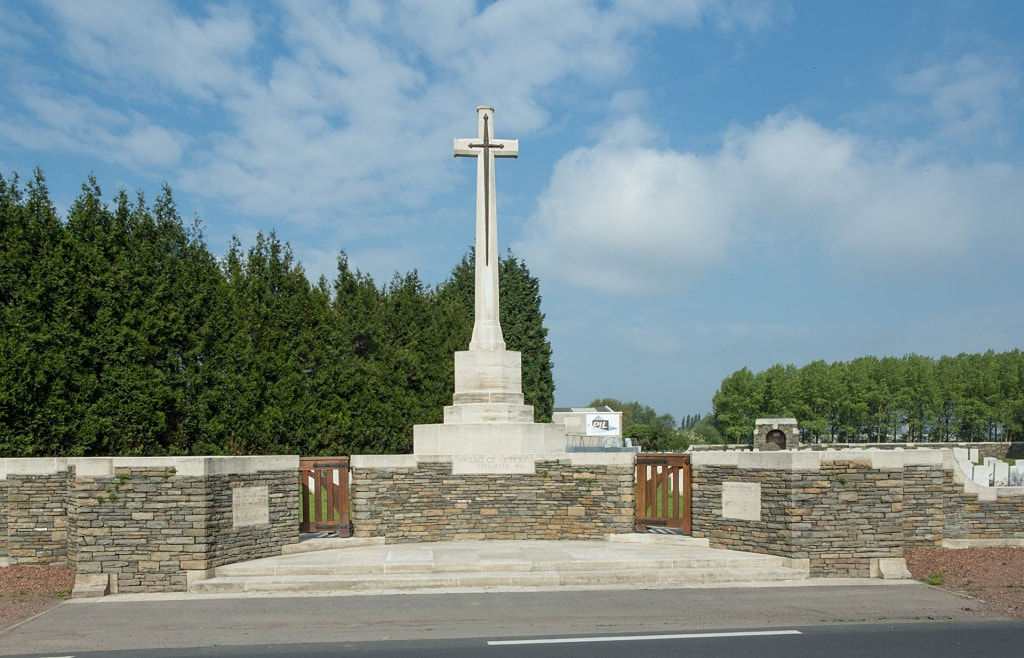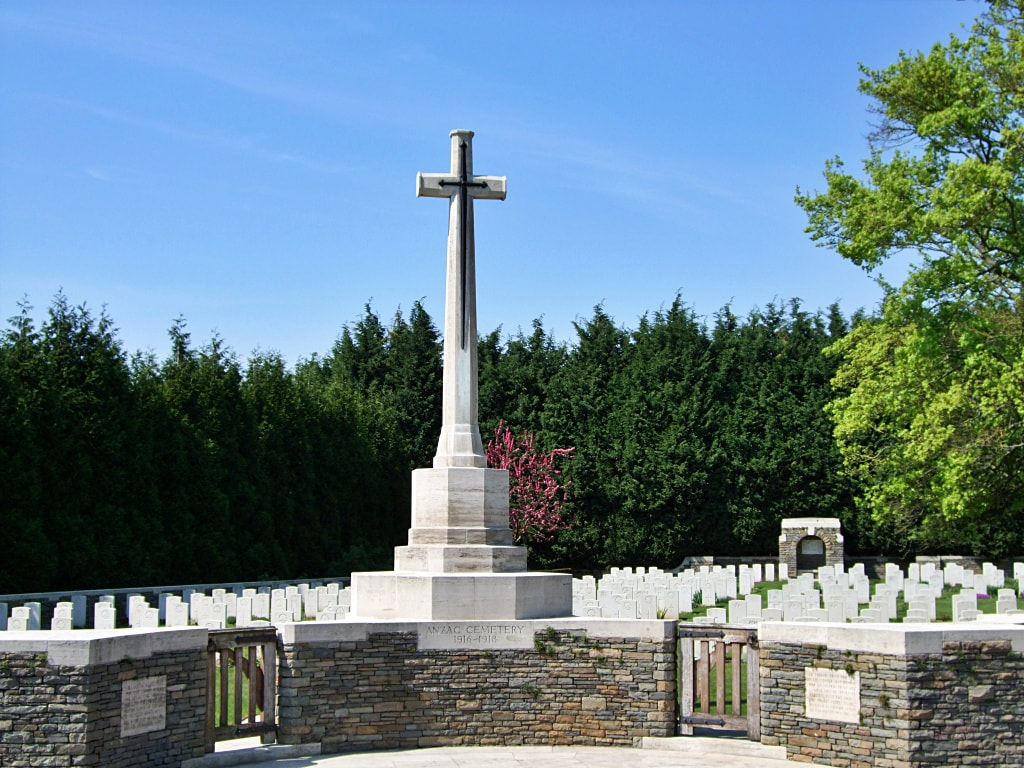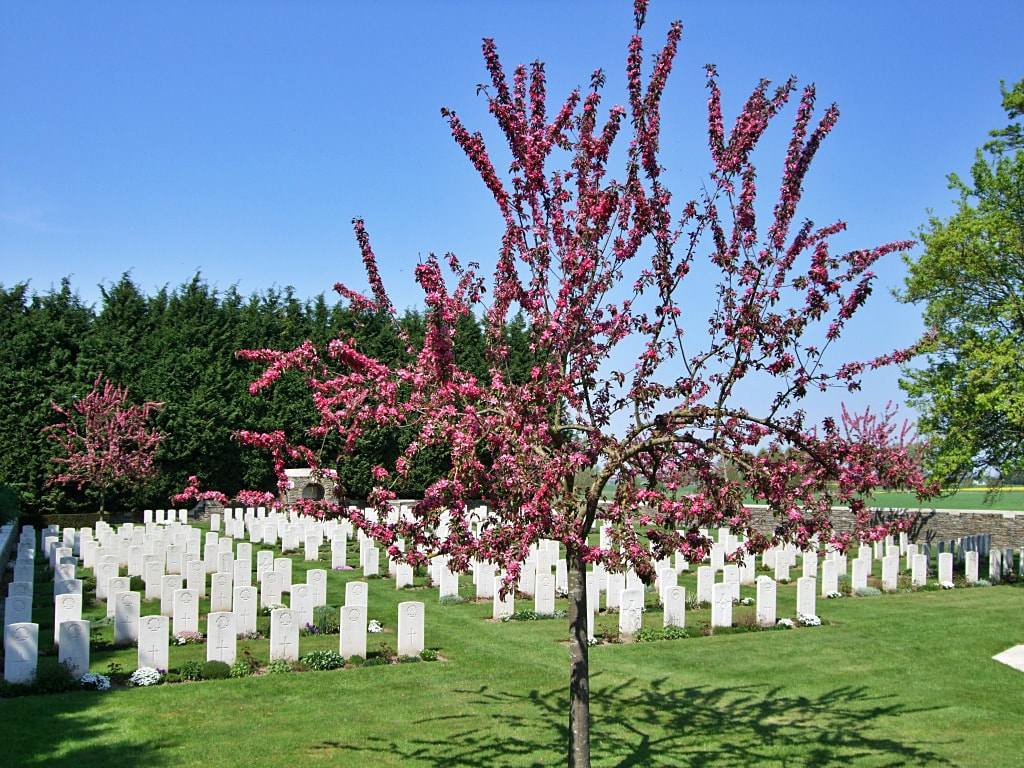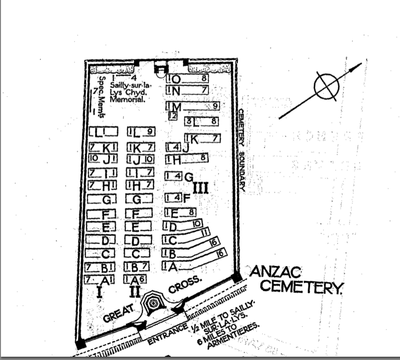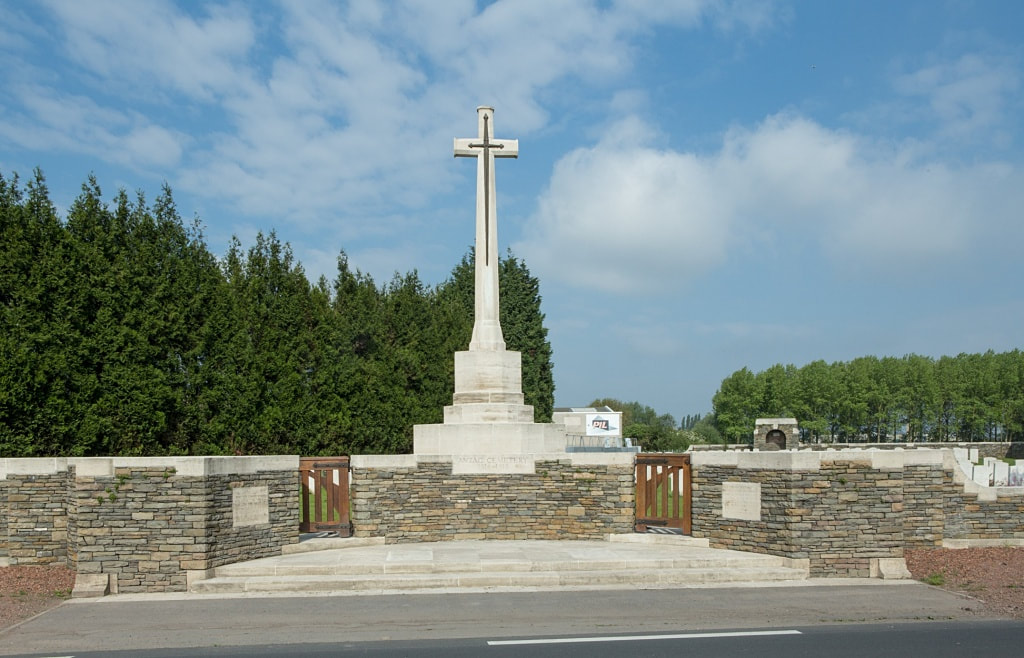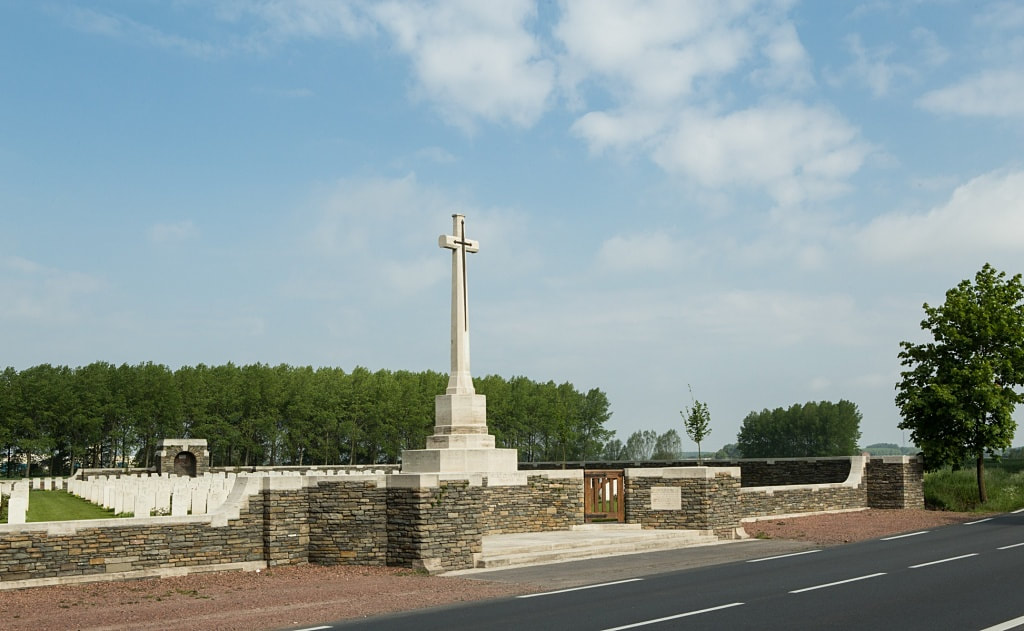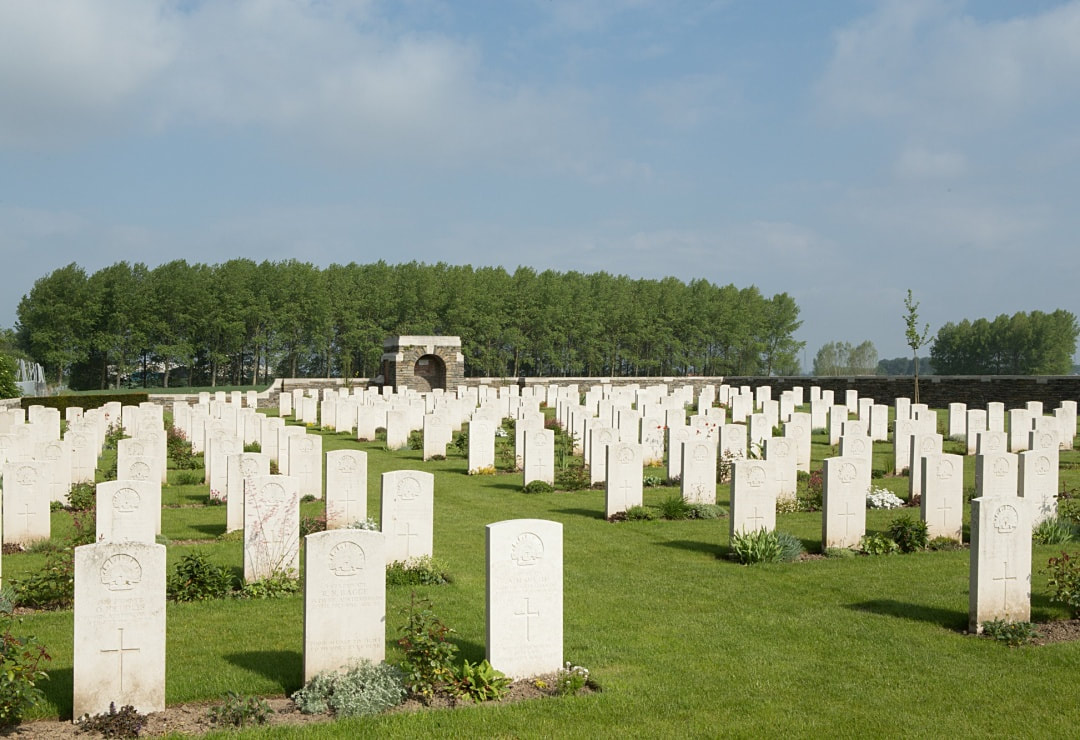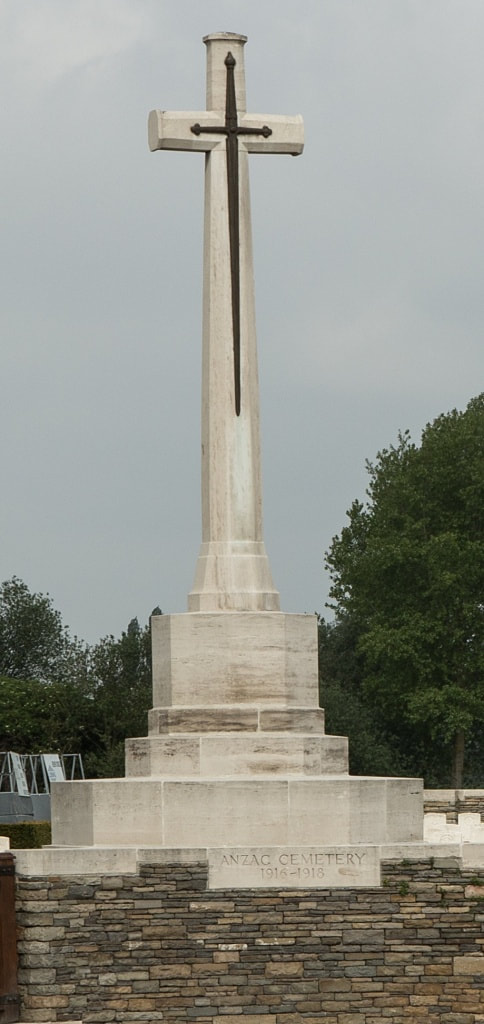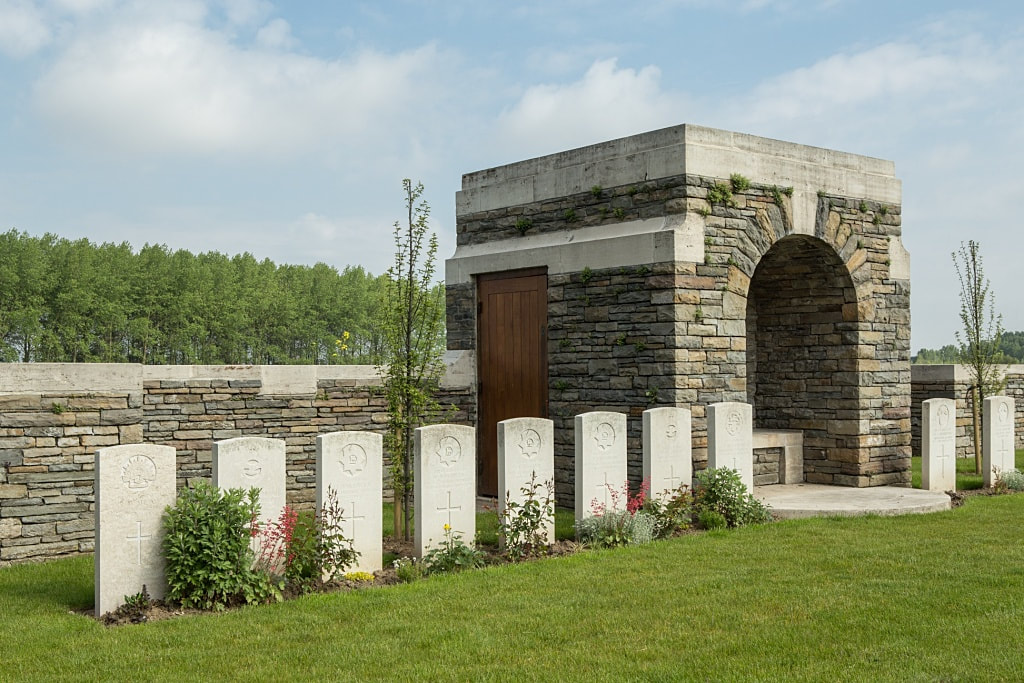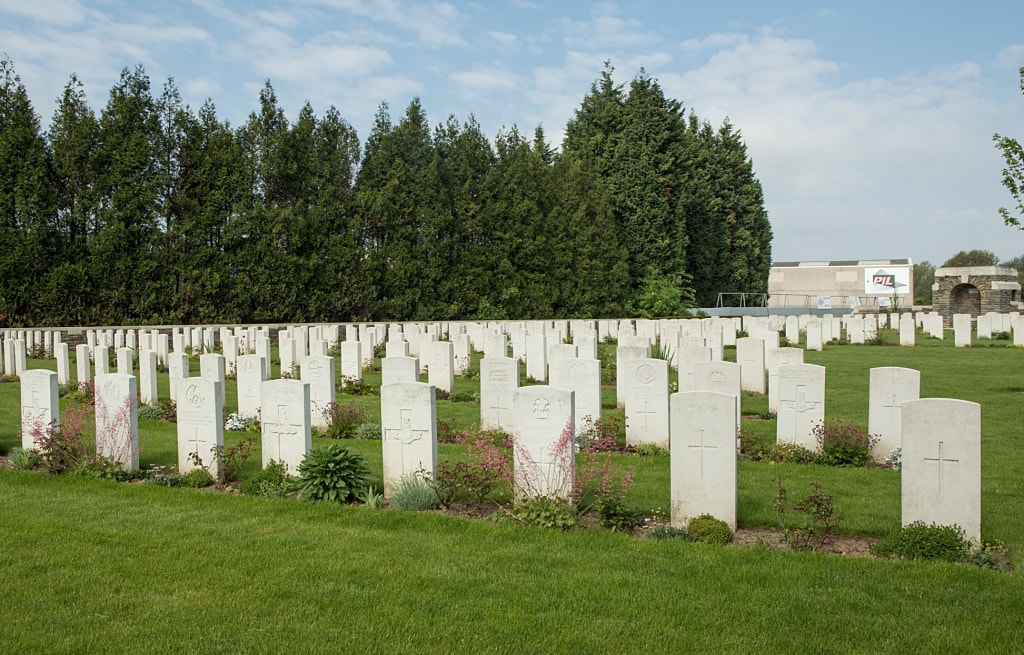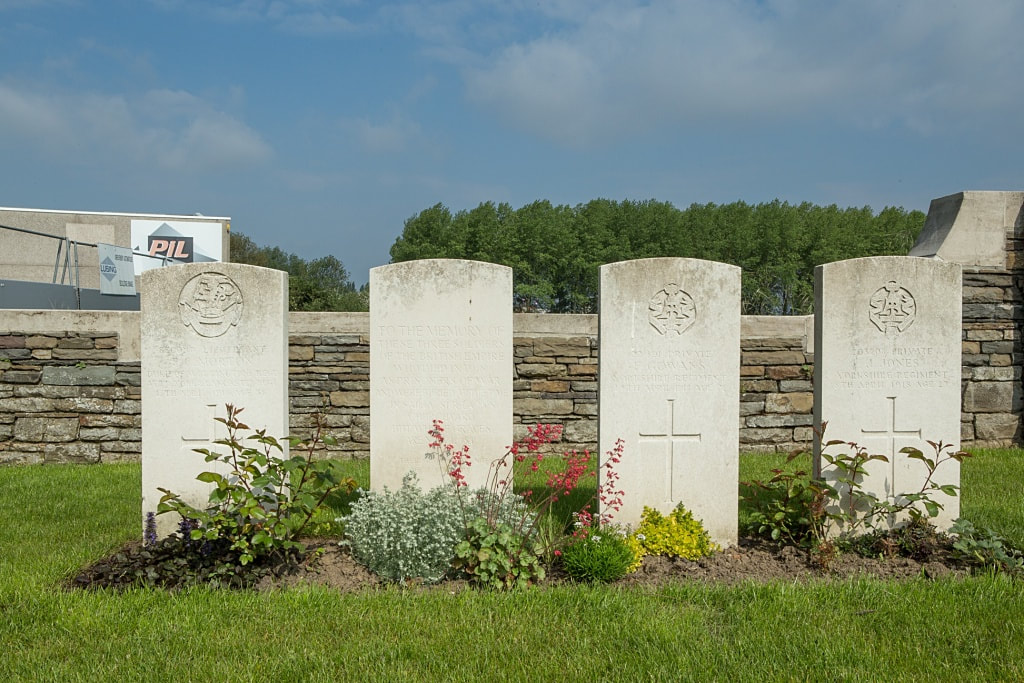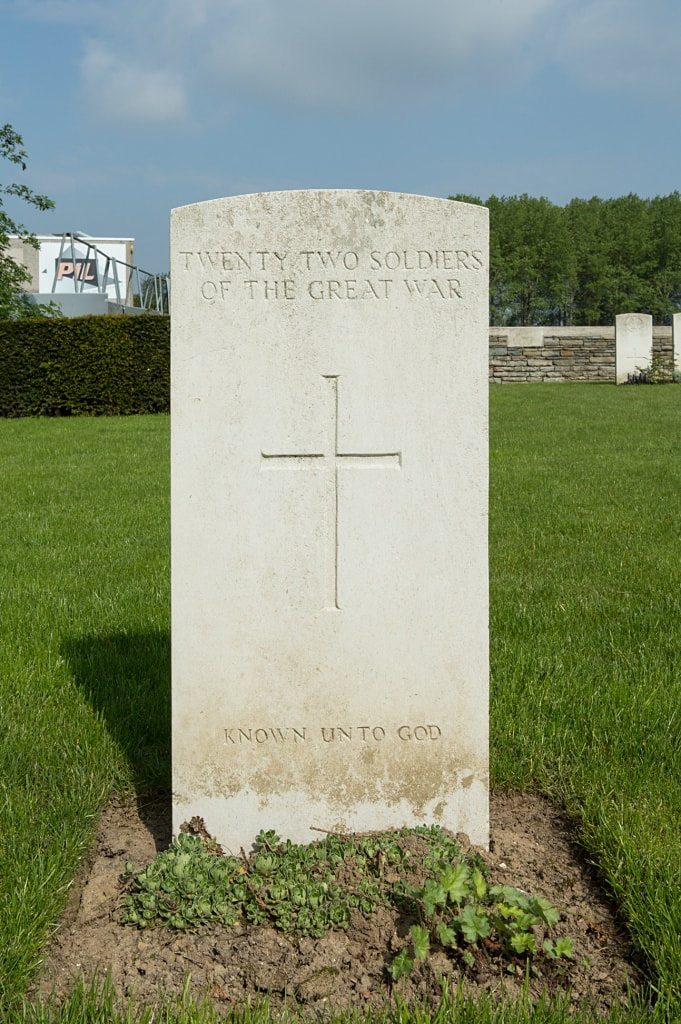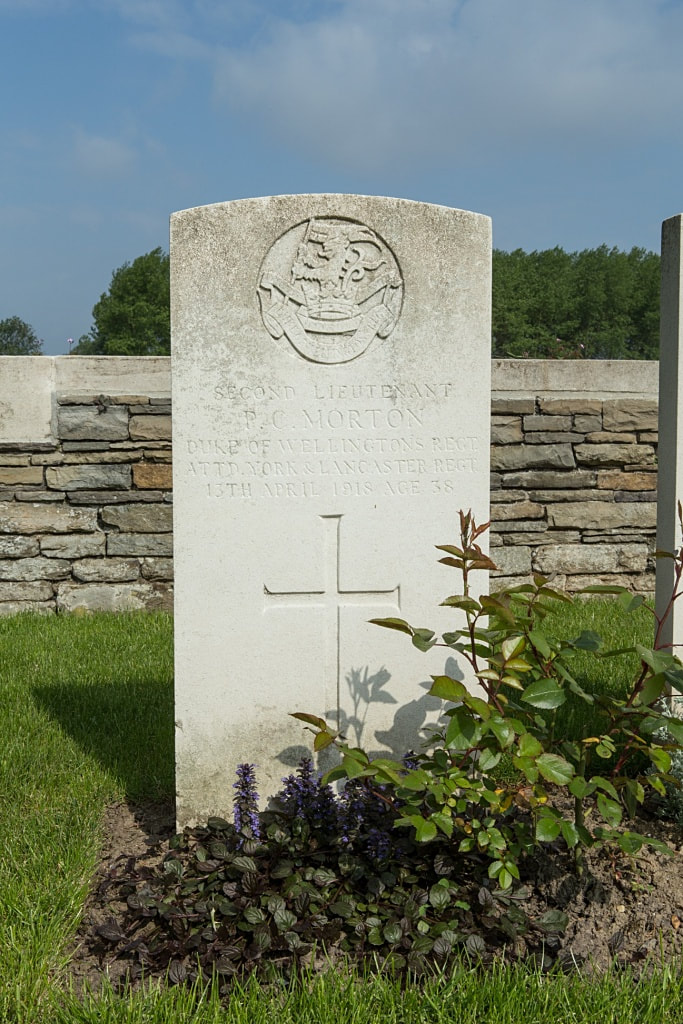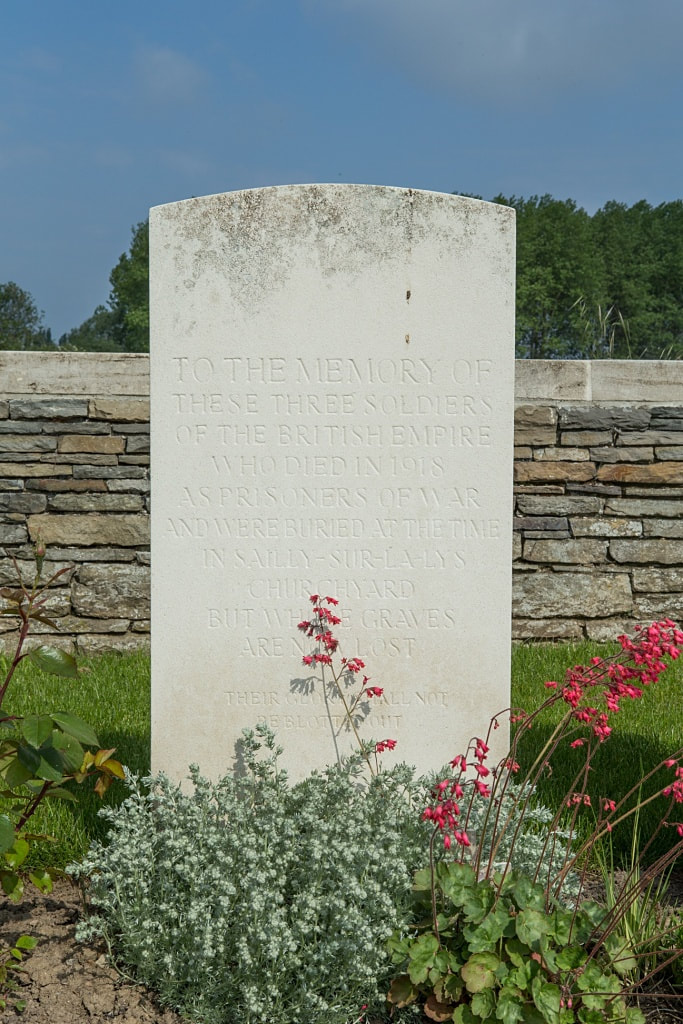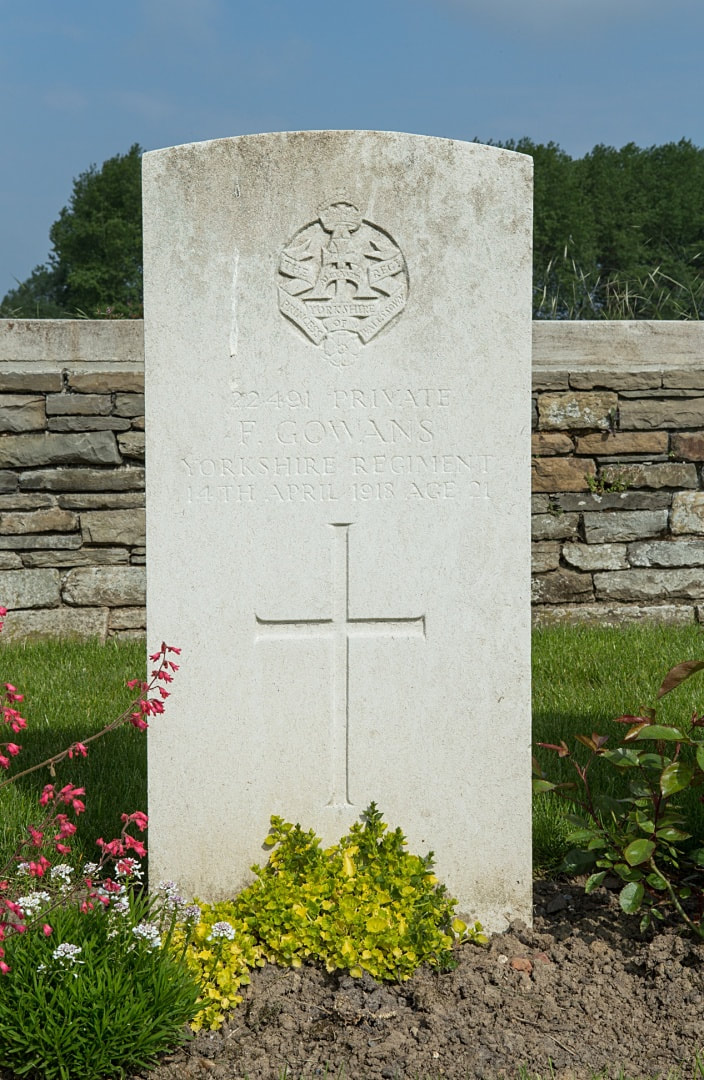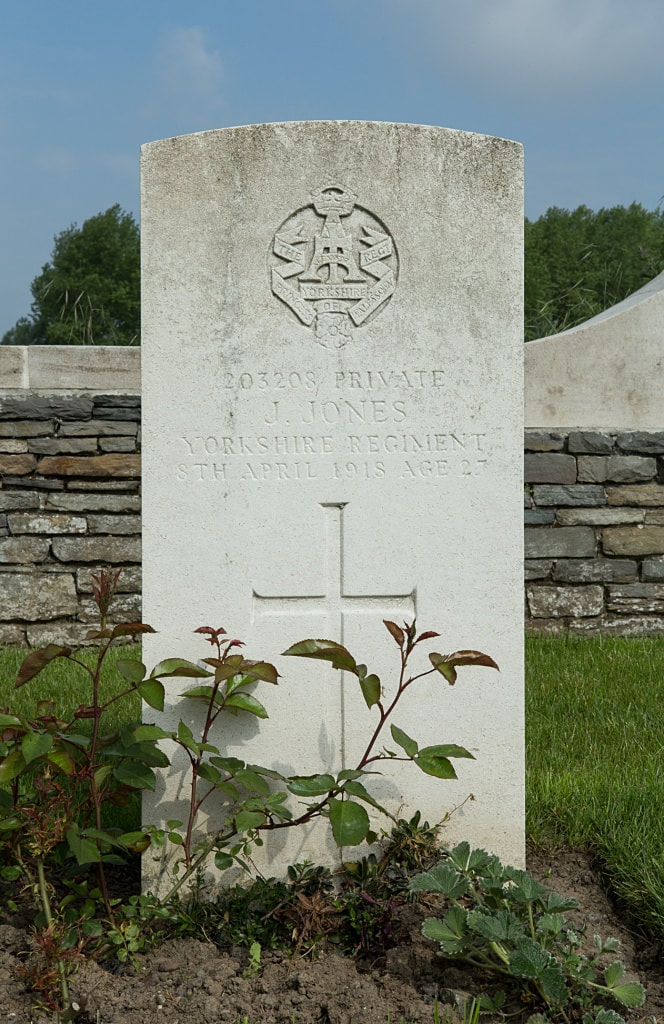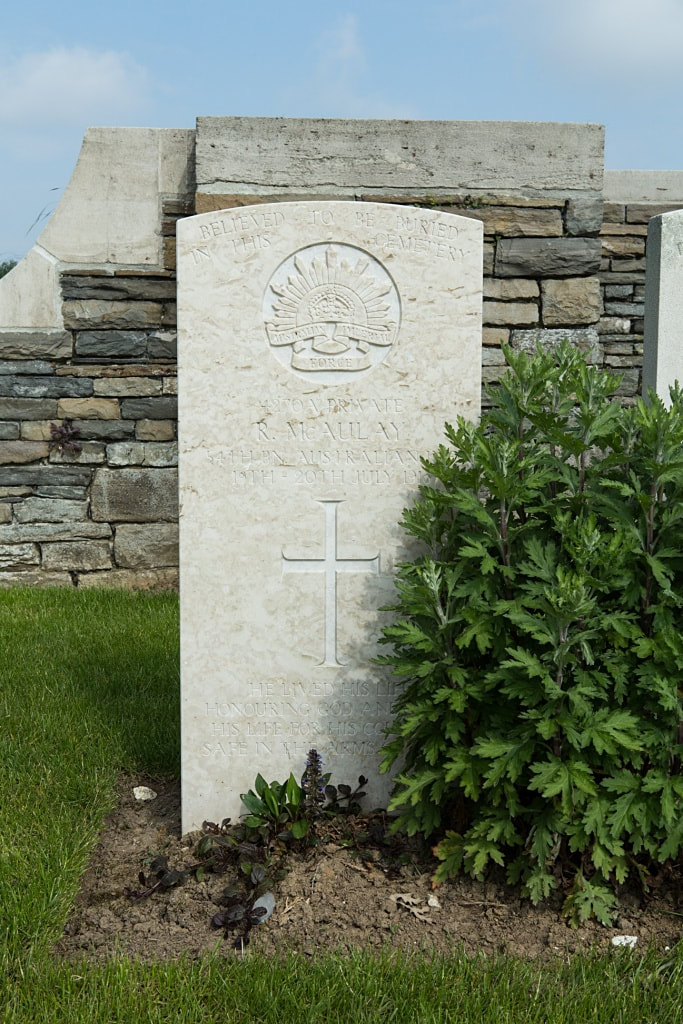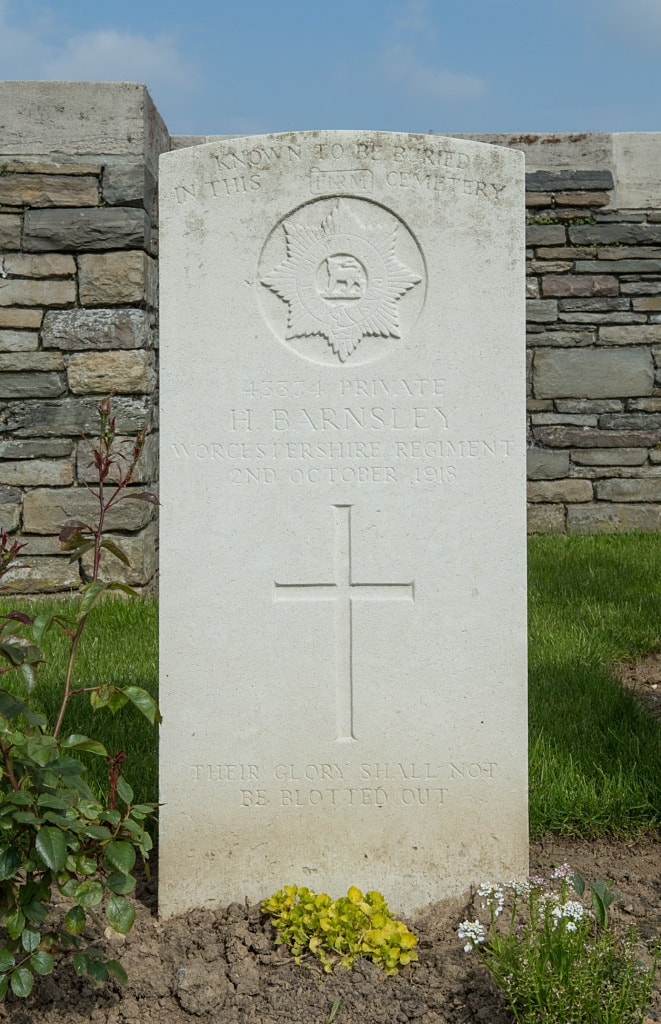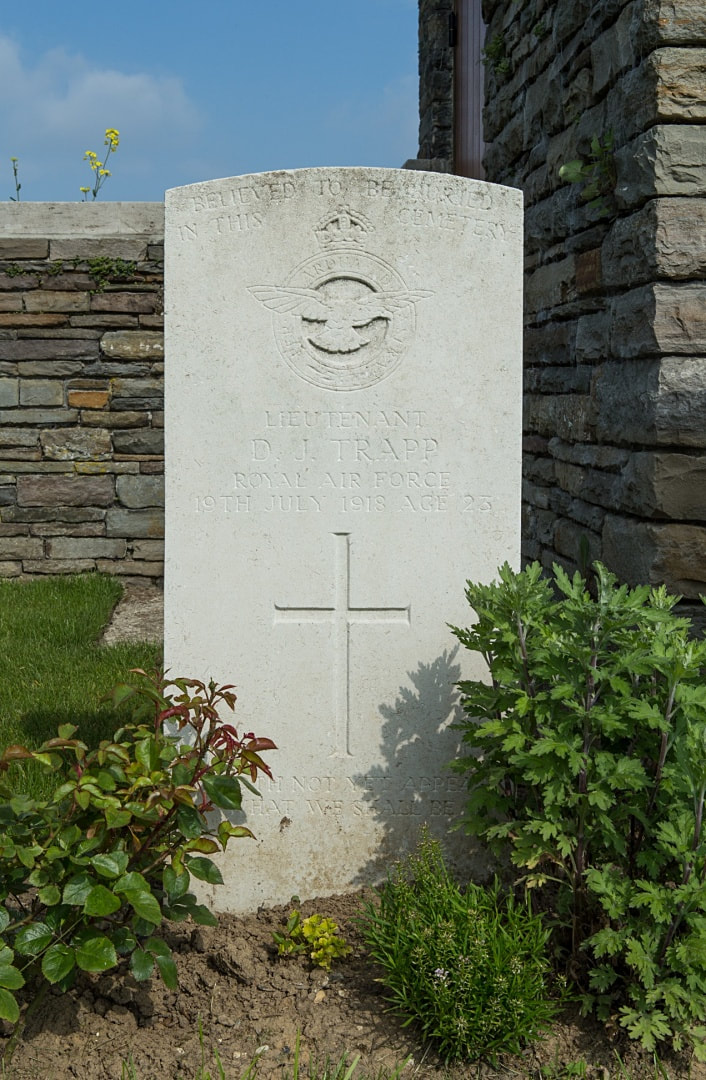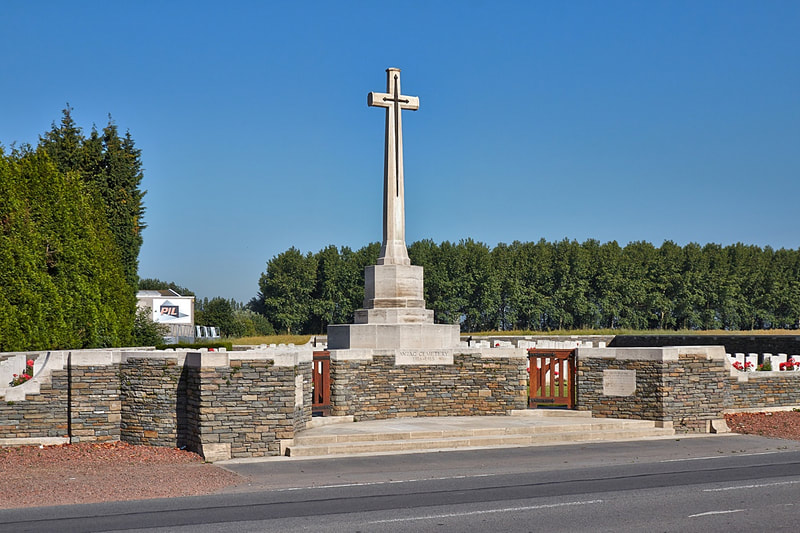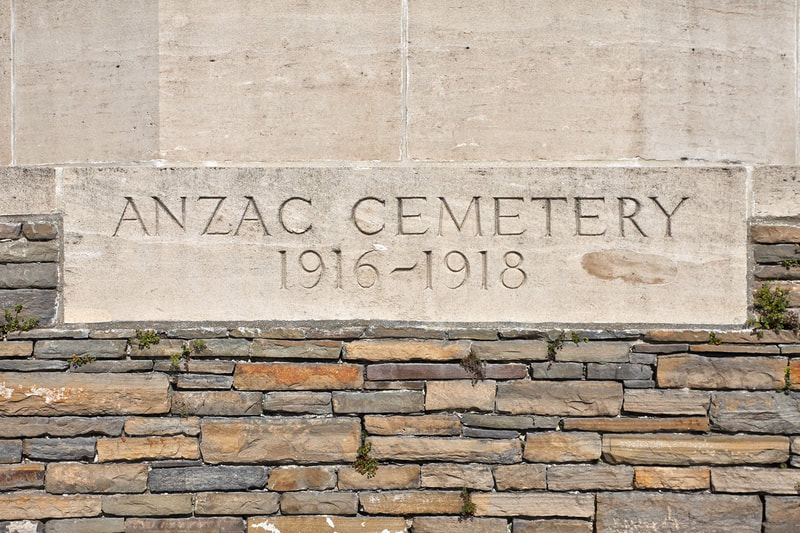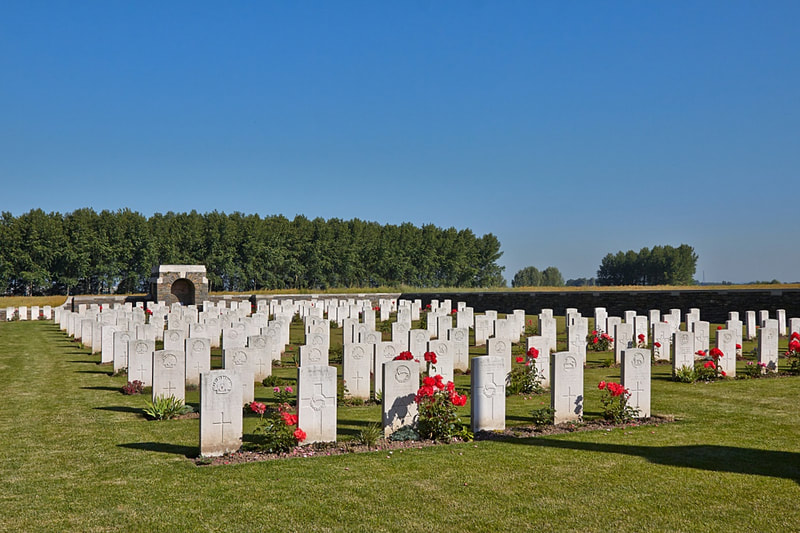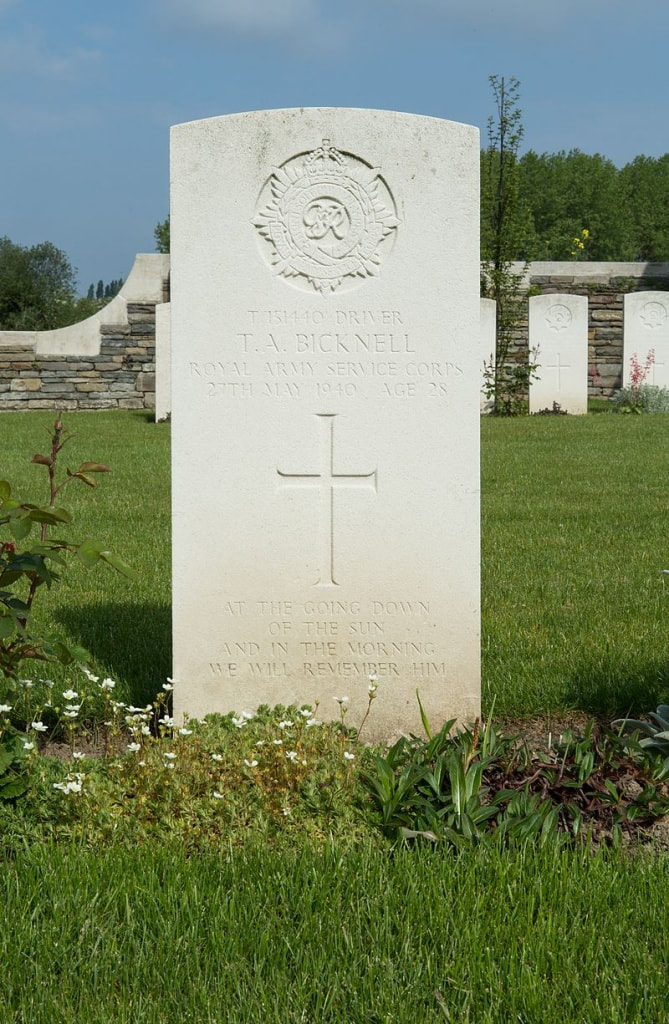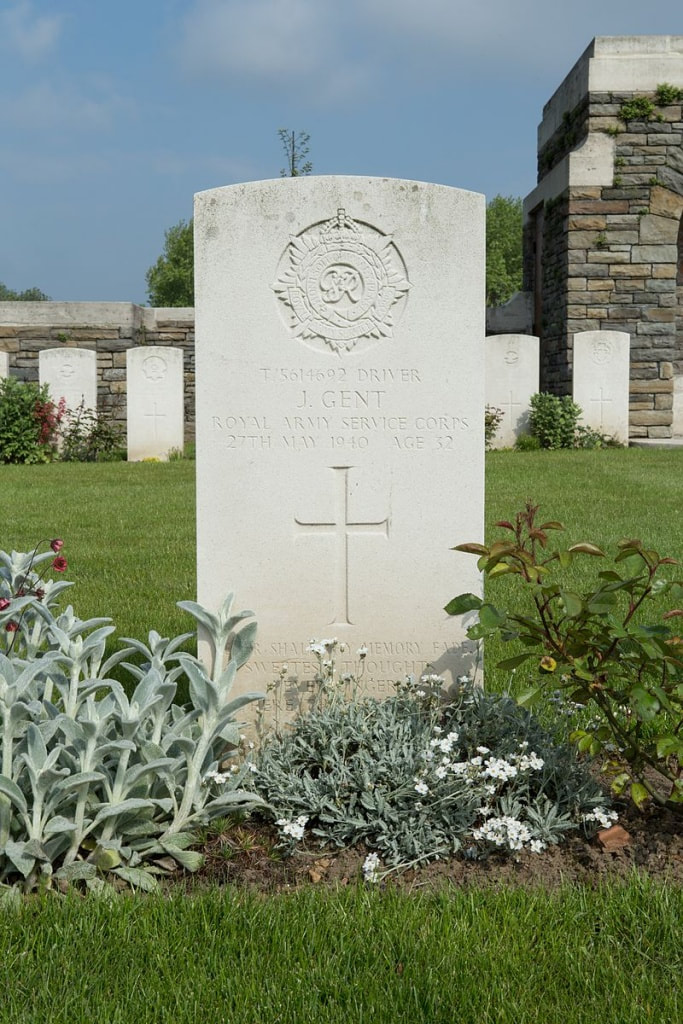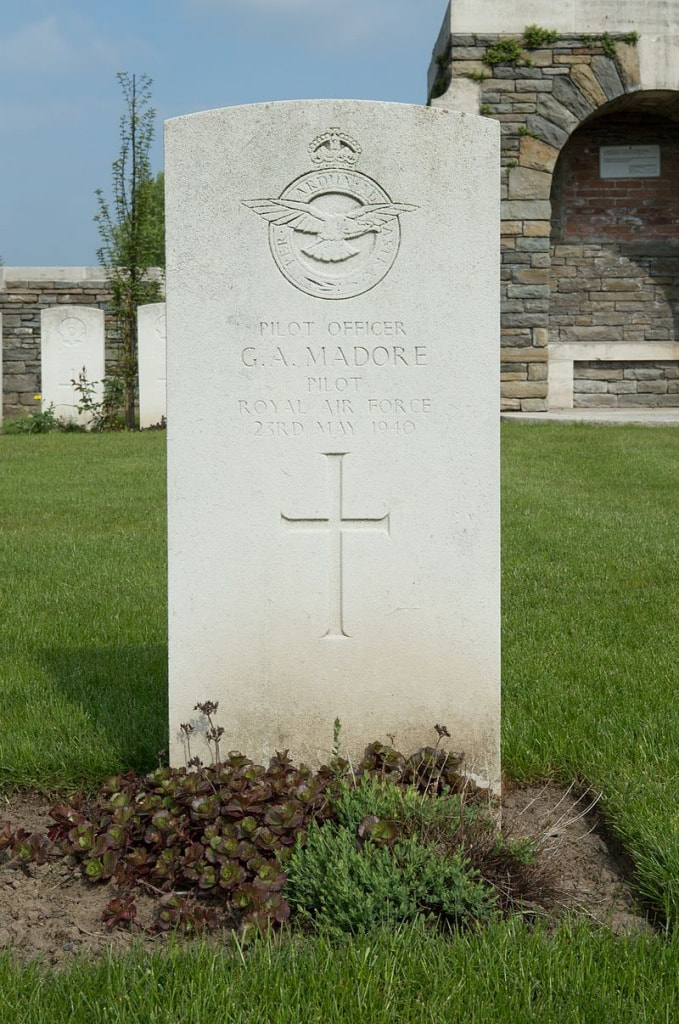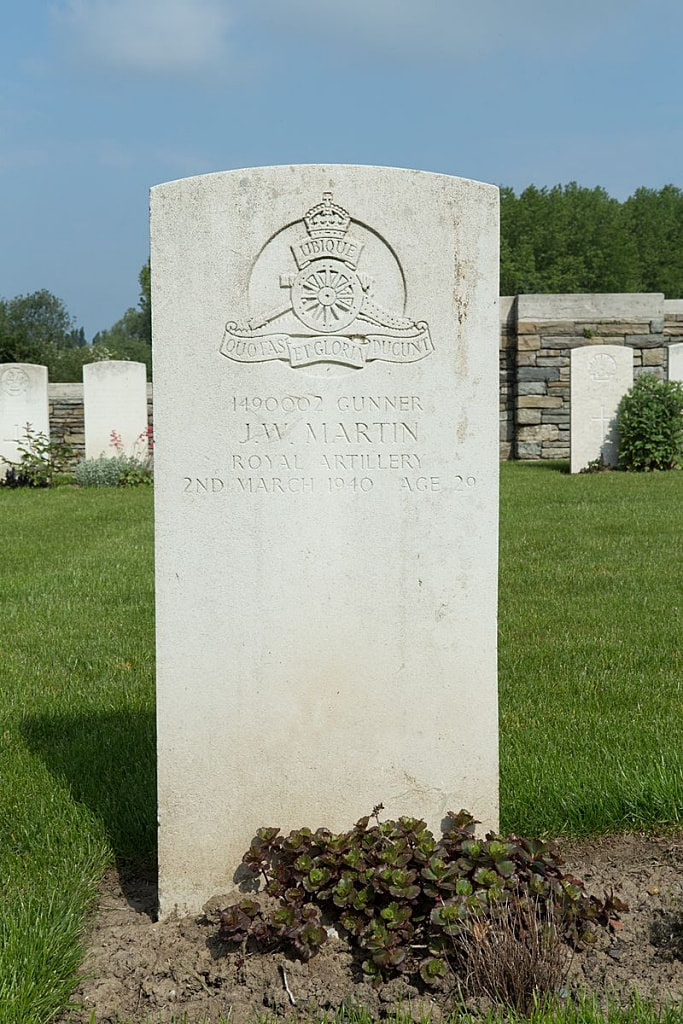ANZAC CEMETERY
Sailly-Sur-La-Lys
Pas De Calais
France
GPS Coordinates: Latitude: 50.65271, Longitude: 2.76311
Location Information
The Cemetery is on the north-west side of the road between Armentieres and Bethune, the D945, just north of the village Sailly-sur-la-Lys.
Historical Information
Sailly Church was burnt during the open fighting of October 1914, when French cavalry and British and German infantry fought on the Lys, but from the winter of 1914-1915 to the spring of 1918 the village was comparatively untouched. It was captured by the Germans on 9 April 1918, and it remained in their hands until the beginning of September.
Anzac Cemetery was begun by Australian units in July 1916, immediately before the Attack at Fromelles, and it contains the graves of many Australian soldiers who died in that engagement. It continued in use as a front-line cemetery until April 1918 and was used by German troops for the burial of Commonwealth soldiers during the following summer.
Anzac Cemetery contains 320 Commonwealth burials of the First World War. 62 of the burials are unidentified but there are special memorials to seven casualtes known or believed to be buried among them, and to three soldiers buried by the Germans in Sailly Churchyard whose graves could not be located. It also contains five Second World War burials and six German graves.
Total Burials: 326.
World War One Identified Casualties: United Kingdom 149, Australia 102, New Zealand 8. Total 259.
World War One Unidentified Casualties: United Kingdom 28, Australia 10, Unknown 24. Total 62.
World War Two Identified Casualties: United Kingdom 4.
World War Two Unidentified Casualty: 1.
The cemetery was designed by Sir Herbert Baker and William Harrison Cowlishaw
The Cemetery is on the north-west side of the road between Armentieres and Bethune, the D945, just north of the village Sailly-sur-la-Lys.
Historical Information
Sailly Church was burnt during the open fighting of October 1914, when French cavalry and British and German infantry fought on the Lys, but from the winter of 1914-1915 to the spring of 1918 the village was comparatively untouched. It was captured by the Germans on 9 April 1918, and it remained in their hands until the beginning of September.
Anzac Cemetery was begun by Australian units in July 1916, immediately before the Attack at Fromelles, and it contains the graves of many Australian soldiers who died in that engagement. It continued in use as a front-line cemetery until April 1918 and was used by German troops for the burial of Commonwealth soldiers during the following summer.
Anzac Cemetery contains 320 Commonwealth burials of the First World War. 62 of the burials are unidentified but there are special memorials to seven casualtes known or believed to be buried among them, and to three soldiers buried by the Germans in Sailly Churchyard whose graves could not be located. It also contains five Second World War burials and six German graves.
Total Burials: 326.
World War One Identified Casualties: United Kingdom 149, Australia 102, New Zealand 8. Total 259.
World War One Unidentified Casualties: United Kingdom 28, Australia 10, Unknown 24. Total 62.
World War Two Identified Casualties: United Kingdom 4.
World War Two Unidentified Casualty: 1.
The cemetery was designed by Sir Herbert Baker and William Harrison Cowlishaw
Images in gallery below © Werner Van Caneghem
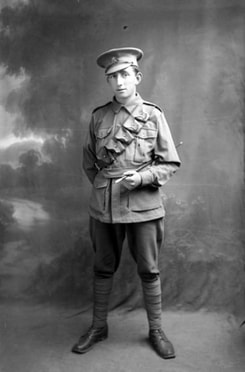
Lieutenant
Timothy Patrick Ahern
54th Bn. Australian Infantry, A.I.F.
Died between 19th July 1916 and 20th July 1016, aged 20.
Plot II. B. 3.
Son of Timothy P. and Minnie Ahern, of 291, Clarke St., Northcote, Victoria, Australia.
His headstone bears the inscription "In Loving Memory Killed In Action R. I. P."
Click on image to enlarge
Studio portrait of 1651 Private (Pte) Timothy Patrick Ahern. A woodworker from Northcote, Victoria prior to enlistment, Pte Ahern embarked with the rank of Acting Sergeant with the 2nd Reinforcements, 24th Battalion from Melbourne on HMAT Demosthenes on 16 July 1915. Later serving at Gallipoli he was promoted to Second Lieutenant. Subsequently transferring to the 54th Battalion he was promoted to Lieutenant and was killed in action on 19 July 1916, aged 22, and was buried in the Anzac Cemetery, Sailly-sur-la-Lys, France.
Timothy Patrick Ahern
54th Bn. Australian Infantry, A.I.F.
Died between 19th July 1916 and 20th July 1016, aged 20.
Plot II. B. 3.
Son of Timothy P. and Minnie Ahern, of 291, Clarke St., Northcote, Victoria, Australia.
His headstone bears the inscription "In Loving Memory Killed In Action R. I. P."
Click on image to enlarge
Studio portrait of 1651 Private (Pte) Timothy Patrick Ahern. A woodworker from Northcote, Victoria prior to enlistment, Pte Ahern embarked with the rank of Acting Sergeant with the 2nd Reinforcements, 24th Battalion from Melbourne on HMAT Demosthenes on 16 July 1915. Later serving at Gallipoli he was promoted to Second Lieutenant. Subsequently transferring to the 54th Battalion he was promoted to Lieutenant and was killed in action on 19 July 1916, aged 22, and was buried in the Anzac Cemetery, Sailly-sur-la-Lys, France.
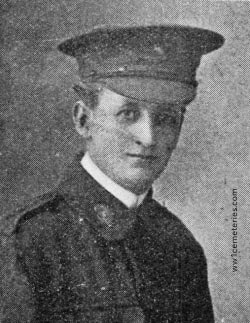
3010 Private
Harry Walter Bancroft
53rd Bn. Australian Infantry, A.I.F.
20th July 1916, aged 27.
Plot I. B. 3.
Son of John Henry and Emma Bancroft; husband of Ivy A. Bancroft, of "Truro," Bishop St., Burwood, New South Wales.
His headstone bears the inscription "In Loving Memory Of My Husband One Of THe Best"
Studio portrait of 3010 Acting Sergeant (later Private) Harry Walter Bancroft, 18th (later 53rd) Battalion of Burwood, NSW. A printer prior to enlisting, he embarked from Sydney aboard HMAT Suevic (A29) on 20 December 1916. He was wounded in action on 19 July 1917 at Fromelles, France and died next day at the 14th Field Ambulance Station, France, aged 27
Harry Walter Bancroft
53rd Bn. Australian Infantry, A.I.F.
20th July 1916, aged 27.
Plot I. B. 3.
Son of John Henry and Emma Bancroft; husband of Ivy A. Bancroft, of "Truro," Bishop St., Burwood, New South Wales.
His headstone bears the inscription "In Loving Memory Of My Husband One Of THe Best"
Studio portrait of 3010 Acting Sergeant (later Private) Harry Walter Bancroft, 18th (later 53rd) Battalion of Burwood, NSW. A printer prior to enlisting, he embarked from Sydney aboard HMAT Suevic (A29) on 20 December 1916. He was wounded in action on 19 July 1917 at Fromelles, France and died next day at the 14th Field Ambulance Station, France, aged 27
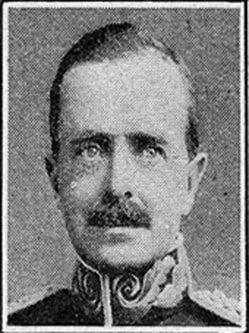
Lieutenant General
Robert George Broadwood, Companion of the Bath, 4 x times Mentioned in Despatches
General Staff Commanding, 57th Division. Late 12th (Prince of Wales's Royal) Lancers
21st June 1917, aged 55.
Plot II. I. 6.
Order of Osmanieh (4th Class) award.
Robert George Broadwood, Companion of the Bath, 4 x times Mentioned in Despatches
General Staff Commanding, 57th Division. Late 12th (Prince of Wales's Royal) Lancers
21st June 1917, aged 55.
Plot II. I. 6.
Order of Osmanieh (4th Class) award.
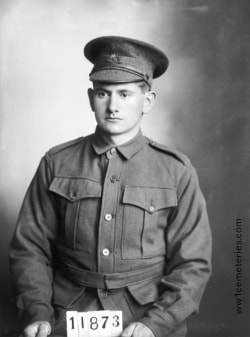
1536 Private
Charles Greenshields
31st Bn. Australian Infantry, A.I.F.
8th August 1916.
Plot II. D. 4.
Brother of John Greenshields, of 65, Main St., Holytown, Lanarkshire, Scotland.
Studio portrait of 1536 Private (Pte) Charles Greenshields, 1st Reinforcements, 31st Battalion, of Traveston, Qld (originally of Holytown, Scotland). Pte Greenshields enlisted on 17 July 1915 and embarked from Melbourne aboard HMAT Bakara on 5 November 1915. He was killed in action on 8 August 1916 at the Somme, France. His mother filled out the Roll of Honour circular with pride: 'While a young lad of 18 he heard the clarion call of the Colonies for vigorous young manhood. He left Scotland for Australia when the call for men came in 1915 he was not deaf to either'.
Charles Greenshields
31st Bn. Australian Infantry, A.I.F.
8th August 1916.
Plot II. D. 4.
Brother of John Greenshields, of 65, Main St., Holytown, Lanarkshire, Scotland.
Studio portrait of 1536 Private (Pte) Charles Greenshields, 1st Reinforcements, 31st Battalion, of Traveston, Qld (originally of Holytown, Scotland). Pte Greenshields enlisted on 17 July 1915 and embarked from Melbourne aboard HMAT Bakara on 5 November 1915. He was killed in action on 8 August 1916 at the Somme, France. His mother filled out the Roll of Honour circular with pride: 'While a young lad of 18 he heard the clarion call of the Colonies for vigorous young manhood. He left Scotland for Australia when the call for men came in 1915 he was not deaf to either'.
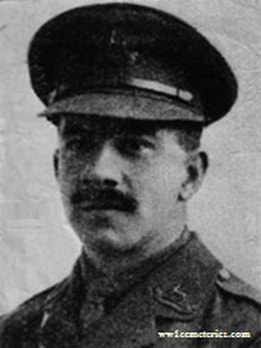
Second Lieutenant
G. P. Holland
Royal Warwickshire Regiment, attd. 7th Bn. Norfolk Regiment
18th March 1918.
Plot III. A. 11
G. P. Holland
Royal Warwickshire Regiment, attd. 7th Bn. Norfolk Regiment
18th March 1918.
Plot III. A. 11
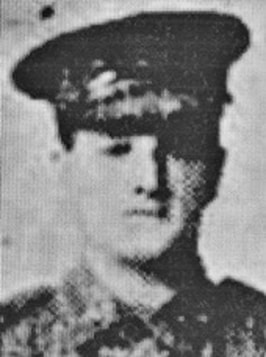
909 Private
Percy Edwin Ings
8th Coy. Australian Machine Gun Corps.
20th July 1916, aged 23.
Plot I. B. 2.
Son of Edwin and Emma Ings, of Breadalbane, New South Wales. Native of Goulburn, New South Wales.
His headstone bears the inscription "He Has gone To The Mansion Of Rest For Ever With The Lord"
Picture courtesy of nephew, Paul Ings
Percy Edwin Ings
8th Coy. Australian Machine Gun Corps.
20th July 1916, aged 23.
Plot I. B. 2.
Son of Edwin and Emma Ings, of Breadalbane, New South Wales. Native of Goulburn, New South Wales.
His headstone bears the inscription "He Has gone To The Mansion Of Rest For Ever With The Lord"
Picture courtesy of nephew, Paul Ings
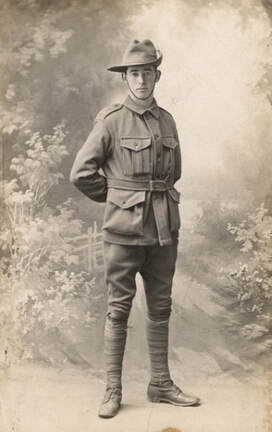
3041 Private
Jep Francis Kenny
57th Bn. Australian Infantry, A.I.F.
17th July 1916, aged 19.
Plot I. A. 7.
Son of James Francis and Caroline Jespersen Kenny, of Peechelba, Victoria, Australia. Native of Thoona, Victoria.
Click on image to enlarge
His headstone bears the inscription "Rest In Peace"
Studio portrait of 3041 Private (Pte) Jep Francis Kenny 6th Battalion. Pte Kenny (sometimes spelled Kenney) was a farm labourer from Peechelba, Victoria, who enlisted on 16 July 1915. He embarked from Melbourne aboard on the Royal Mail Steamer (RMS) Osterley on 29 September 1915 and after further training in Egypt he was transferred to the 57th Battalion. Pte Kenny died on 17 July 1916 from wounds received near Pozieres, France
Jep Francis Kenny
57th Bn. Australian Infantry, A.I.F.
17th July 1916, aged 19.
Plot I. A. 7.
Son of James Francis and Caroline Jespersen Kenny, of Peechelba, Victoria, Australia. Native of Thoona, Victoria.
Click on image to enlarge
His headstone bears the inscription "Rest In Peace"
Studio portrait of 3041 Private (Pte) Jep Francis Kenny 6th Battalion. Pte Kenny (sometimes spelled Kenney) was a farm labourer from Peechelba, Victoria, who enlisted on 16 July 1915. He embarked from Melbourne aboard on the Royal Mail Steamer (RMS) Osterley on 29 September 1915 and after further training in Egypt he was transferred to the 57th Battalion. Pte Kenny died on 17 July 1916 from wounds received near Pozieres, France
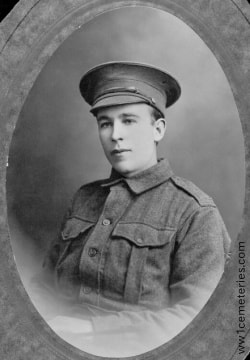
902 Private
Thomas David Kirkaldy
31st Bn. Australian Infantry, A.I.F.
20th July 1916, aged 23.
Plot II. C. 3.
Youngest son of Robert and Eliza Kirkaldy. Native of South Melbourne, Victoria, Australia.
His headstone bears the inscription "Beloved And Youngest Son Of R. & E. Kirkaldy Late Of Glasgow, Scotland"
Studio portrait of 902 Private (Pte) Thomas David Kirkaldy, 31st Battalion, from South Melbourne, Vic. Pte Kirkaldy enlisted on 7 July 1915 and was killed in action on 20 July 1916 during the battle of Fromelles.
Thomas David Kirkaldy
31st Bn. Australian Infantry, A.I.F.
20th July 1916, aged 23.
Plot II. C. 3.
Youngest son of Robert and Eliza Kirkaldy. Native of South Melbourne, Victoria, Australia.
His headstone bears the inscription "Beloved And Youngest Son Of R. & E. Kirkaldy Late Of Glasgow, Scotland"
Studio portrait of 902 Private (Pte) Thomas David Kirkaldy, 31st Battalion, from South Melbourne, Vic. Pte Kirkaldy enlisted on 7 July 1915 and was killed in action on 20 July 1916 during the battle of Fromelles.
Images in gallery below © Geerhard Joos
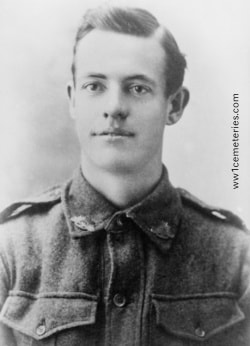
2869 Private
Albert Edward Lowe
14th Company, Australian Machine Gun Corps
20th July 1916.
Plot I. I. 1.
Son of William and Barbara Lowe, of Atchison St., Wollongong, New South Wales.
His headstone bears the inscription "Nearer My God To Thee"
Albert Edward Lowe
14th Company, Australian Machine Gun Corps
20th July 1916.
Plot I. I. 1.
Son of William and Barbara Lowe, of Atchison St., Wollongong, New South Wales.
His headstone bears the inscription "Nearer My God To Thee"
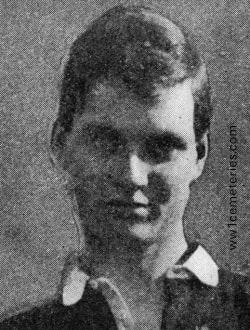
3547 Private
Leslie Harold Raward
53rd Bn. Australian Infantry, A.I.F.
17th July 1916.
Plot I. B. 7.
Leslie Harold Raward
53rd Bn. Australian Infantry, A.I.F.
17th July 1916.
Plot I. B. 7.
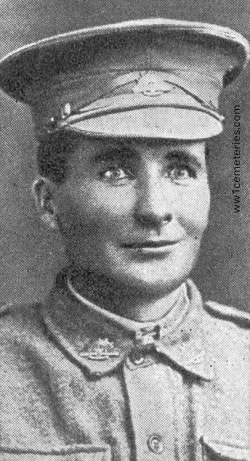
4889 Private
Donald Ewen Ross
56th Bn. Australian Infantry, A.I.F.
20th July 1016, aged 41.
Plot I. F. 5.
Son of Alexander and Mary Ross, of 40, Church St., Wollongong, New South Wales. Native of Victoria, Australia.
Studio portrait of 4889 Private Donald Ewen Ross 4th (later 56th) Battalion of Dorrigo, NSW. Son of Alexander and Mary Ross, of, Wollongong, NSW. A farmer prior to enlisting, he embarked from Sydney aboard HMAT Star of England (A15) on 8 March 1916. He was killed in action on 20 July 1916 in France, aged 41
Donald Ewen Ross
56th Bn. Australian Infantry, A.I.F.
20th July 1016, aged 41.
Plot I. F. 5.
Son of Alexander and Mary Ross, of 40, Church St., Wollongong, New South Wales. Native of Victoria, Australia.
Studio portrait of 4889 Private Donald Ewen Ross 4th (later 56th) Battalion of Dorrigo, NSW. Son of Alexander and Mary Ross, of, Wollongong, NSW. A farmer prior to enlisting, he embarked from Sydney aboard HMAT Star of England (A15) on 8 March 1916. He was killed in action on 20 July 1916 in France, aged 41
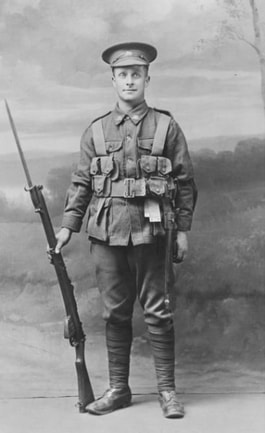
4239 Private
Arthur Montague Smyth
54th Bn. Australian Infantry, A.I.F.
Died between 19th July 1916 and 20th July 1916, aged 20.
Plot I. A. 1.
Son of Richard John and Elizabeth Smyth, of Hudson Road, Albion, Queensland. Native of Thursday Island, Queensland.
Click on image to enlarge
His headstone bears the inscription "With Us His Memory Ever Lives He Fought A Noble Fight"
Studio portrait of 4239 Private Arthur Montague Smyth, 54th Battalion from Torrington, NSW. A 24 year old railway fettler prior to enlistment on 14 August 1915, he embarked for overseas with the 13th Reinforcements from Sydney on 20 December 1915 aboard HMAT Aeneas. He was killed in action on 19 July 1916 near Pozieres, France
Arthur Montague Smyth
54th Bn. Australian Infantry, A.I.F.
Died between 19th July 1916 and 20th July 1916, aged 20.
Plot I. A. 1.
Son of Richard John and Elizabeth Smyth, of Hudson Road, Albion, Queensland. Native of Thursday Island, Queensland.
Click on image to enlarge
His headstone bears the inscription "With Us His Memory Ever Lives He Fought A Noble Fight"
Studio portrait of 4239 Private Arthur Montague Smyth, 54th Battalion from Torrington, NSW. A 24 year old railway fettler prior to enlistment on 14 August 1915, he embarked for overseas with the 13th Reinforcements from Sydney on 20 December 1915 aboard HMAT Aeneas. He was killed in action on 19 July 1916 near Pozieres, France
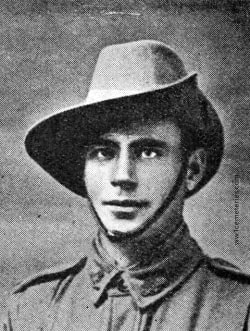
4601 Private
Walter John W. St. Ledger
54th Bn. Australian Infantry, A.I.F.
Died between 19th July 1916 and 20th July 1916.
PLot II. H. 7.
Studio portrait of 3910 Private Walter John St Ledger 13th (later 54th) Battalion of Berala via Lidcombe, NSW. An engine driver prior to enlisting, he embarked from Sydney aboard HMAT Ballarat (A70) on 16 December 1916. He was killed in action at Fromelles, France on 19 July 1916, aged 28
Walter John W. St. Ledger
54th Bn. Australian Infantry, A.I.F.
Died between 19th July 1916 and 20th July 1916.
PLot II. H. 7.
Studio portrait of 3910 Private Walter John St Ledger 13th (later 54th) Battalion of Berala via Lidcombe, NSW. An engine driver prior to enlisting, he embarked from Sydney aboard HMAT Ballarat (A70) on 16 December 1916. He was killed in action at Fromelles, France on 19 July 1916, aged 28
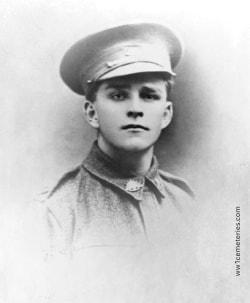
4241 Lance Corporal
Victor James Starr
54th Bn. Australian Infantry, A.I.F.
Died between 19th July 1916 and 20th July 1916, aged 22.
Plot I. H. 3.
Son of Lucy Starr, of 23, Lyne Lane, Alexandria, New South Wales, and the late Jacob Starr.
His headstone bears the instruction "Called Home Those Who Dearly Loved Him"
Studio portrait of 4241 Lance Corporal (LCpl) Victor James Starr, 54th Battalion, of Alexandria, NSW. LCpl Starr enlisted on 20 February 1915 and was killed in action, at Fromelles on 19 July 1916. This portrait is one of a number displayed on a photo montage Honour Board made for the department store Anthony Hordern and Sons Ltd, Sydney by the returned soldier and sailor employees of the company. It commemorated 46 of the company's 48 employees who died as a result of their service in the First World War. L Cpl King was a shop assistant with Anthony Hordern prior to his enlistment. (His brother, 1767 Trooper (Tpr) Walter Starr, 7th Australian Light Horse, of Tooloom, NSW, died of wounds on 14 August 1916 and is buried in Port Said War Memorial Cemetery, Egypt).
Victor James Starr
54th Bn. Australian Infantry, A.I.F.
Died between 19th July 1916 and 20th July 1916, aged 22.
Plot I. H. 3.
Son of Lucy Starr, of 23, Lyne Lane, Alexandria, New South Wales, and the late Jacob Starr.
His headstone bears the instruction "Called Home Those Who Dearly Loved Him"
Studio portrait of 4241 Lance Corporal (LCpl) Victor James Starr, 54th Battalion, of Alexandria, NSW. LCpl Starr enlisted on 20 February 1915 and was killed in action, at Fromelles on 19 July 1916. This portrait is one of a number displayed on a photo montage Honour Board made for the department store Anthony Hordern and Sons Ltd, Sydney by the returned soldier and sailor employees of the company. It commemorated 46 of the company's 48 employees who died as a result of their service in the First World War. L Cpl King was a shop assistant with Anthony Hordern prior to his enlistment. (His brother, 1767 Trooper (Tpr) Walter Starr, 7th Australian Light Horse, of Tooloom, NSW, died of wounds on 14 August 1916 and is buried in Port Said War Memorial Cemetery, Egypt).
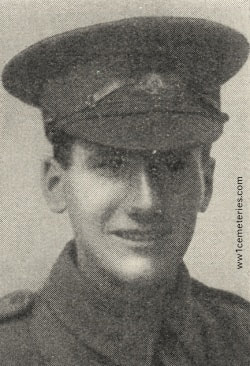
4955 Private
Frederick John Webber
56th Bn. Australian Infantry, A.I.F.
20th July 1916, aged 19.
Plot I. E. 6.
Son of Ambrose and Eda Wilmot Littleton Webber. Native of England.
Studio portrait of 4955 Private Frederick John Webber, 4th (later 56th) Battalion of Auburn, NSW. A railway carriage builder prior to enlisting, he embarked from Sydney aboard HMAT Star of England (A15) on 8 March 1916. He was killed in action, on 20 July 1916, at Fromelles, France, aged 19.
Frederick John Webber
56th Bn. Australian Infantry, A.I.F.
20th July 1916, aged 19.
Plot I. E. 6.
Son of Ambrose and Eda Wilmot Littleton Webber. Native of England.
Studio portrait of 4955 Private Frederick John Webber, 4th (later 56th) Battalion of Auburn, NSW. A railway carriage builder prior to enlisting, he embarked from Sydney aboard HMAT Star of England (A15) on 8 March 1916. He was killed in action, on 20 July 1916, at Fromelles, France, aged 19.

